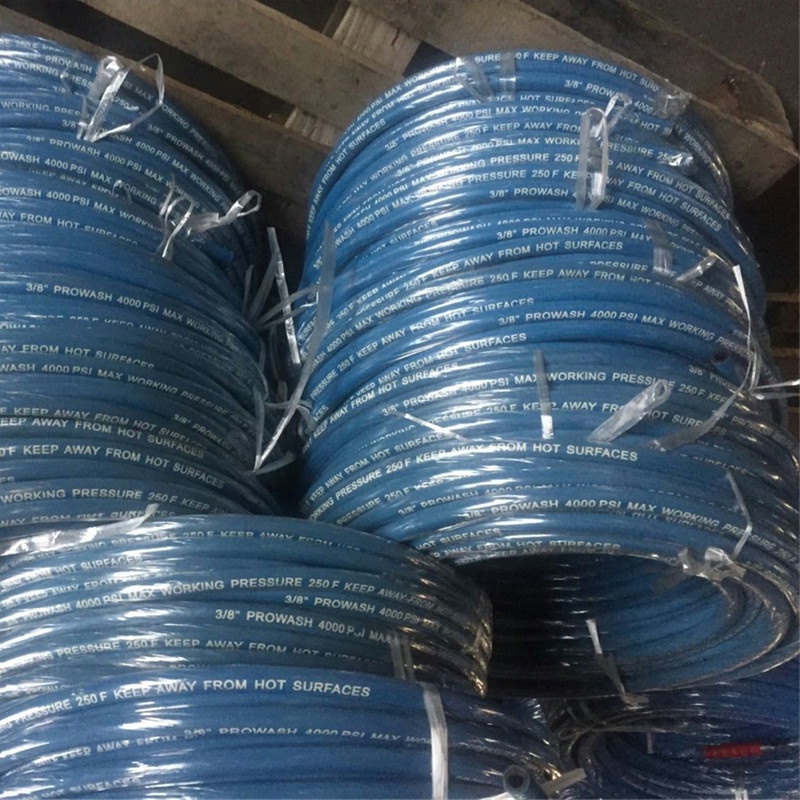335345435
dec . 07, 2024 03:20 Back to list
fiber hose
The Versatility and Importance of Fiber Hoses
In the realm of engineering and manufacturing, one often overlooked yet essential component is the hose, particularly fiber hoses. These hoses, composed of a blend of synthetic fibers and other materials, have gained prominence across various industries due to their robustness, flexibility, and resistance to harsh conditions. This article explores the characteristics, applications, and advantages of fiber hoses, highlighting their critical role in modern machinery and equipment.
Understanding Fiber Hoses
Fiber hoses are designed to handle fluids and gases under pressure, featuring a unique construction that typically includes an inner layer for fluid containment, a reinforcing layer made of synthetic fibers, and an outer protective layer. The reinforcing fibers, often made of materials such as polyester or nylon, give these hoses their strength, flexibility, and durability. Unlike traditional rubber hoses, fiber hoses can handle higher pressures without significantly increasing their diameter or weight.
The design of fiber hoses allows them to maintain their integrity under extreme conditions, making them suitable for a wide array of applications. Depending on the specific requirements, fiber hoses can be manufactured to resist abrasions, weather, chemical exposure, and temperature changes, making them versatile for numerous uses.
Applications Across Industries
The versatility of fiber hoses has led to their adoption in various sectors
1. Automotive Industry Fiber hoses are commonly used in vehicles for fuel, oil, and coolant transfer systems. Their ability to withstand high temperatures and pressures makes them ideal for these applications. Moreover, their lightweight nature helps improve overall vehicle efficiency.
2. Agriculture In the agricultural sector, fiber hoses are essential for irrigation systems, allowing for the efficient transfer of water and nutrients. The durability of these hoses ensures long-term use, reducing maintenance costs and downtime for farmers.
3. Industrial Applications Factories and manufacturing plants utilize fiber hoses to transport various fluids, including chemicals and lubricants. The ability of fiber hoses to resist chemical corrosion and abrasion extends their lifespan in demanding environments.
4. Food and Beverage Sector Sanitary fiber hoses are crucial in the food and beverage industry. They are designed to meet stringent health standards and are easy to clean, preventing contamination while still providing strength and flexibility.
fiber hose

5. Construction and Mining In heavy-duty environments, such as construction sites and mining operations, fiber hoses are used for hydraulic applications. Their resistance to wear and tear ensures that they can endure the rigorous demands of such jobs without compromising safety or efficiency.
Advantages of Fiber Hoses
The popularity of fiber hoses can be attributed to several key advantages
- Lightweight and Flexible Fiber hoses are significantly lighter than their rubber counterparts, which enhances ease of handling and installation. Their flexibility allows for easier routing and placement in tight spaces.
- High Pressure and Temperature Resistance The reinforced construction of fiber hoses enables them to maintain performance under both high pressure and extreme temperatures, ensuring reliability in demanding applications.
- Corrosion and Abrasion Resistance The synthetic fibers used in these hoses provide resistance to chemicals and wear, thus prolonging their lifespan and reducing the need for frequent replacements.
- Cost-Effectiveness While the initial investment in high-quality fiber hoses may be higher than that of standard hoses, their durability and low maintenance needs lead to lower total costs over time.
- Safety Many fiber hoses are designed to minimize the risk of leaks and ruptures, enhancing workplace safety. Their robust design ensures that the fluid transport systems remain secure under pressure.
Conclusion
Fiber hoses have become indispensable components in various industries, thanks to their impressive strength, flexibility, and resistance to extreme conditions. As technology continues to advance, the range of applications for fiber hoses is expected to expand further, contributing to the efficiency and reliability of modern machinery and equipment. Whether in automotive systems, agricultural practices, or industrial processes, the role of fiber hoses cannot be underestimated, marking them as vital tools in the continued evolution of engineering and manufacturing.
-
SAE 100 R17 Black Smooth Cover Hydraulic Hose
NewsMar.07,2025
-
SAE 100 R17 Black Smooth Cover Hydraulic Hose
NewsMar.07,2025
-
SAE 100 R17 Black Smooth Cover Hydraulic Hose
NewsMar.07,2025
-
SAE 100 R17 Black Smooth Cover Hydraulic Hose
NewsMar.07,2025
-
SAE 100 R17 Black Smooth Cover Hydraulic Hose
NewsMar.07,2025
-
steel wire braided hydraulic hose
NewsMar.07,2025



